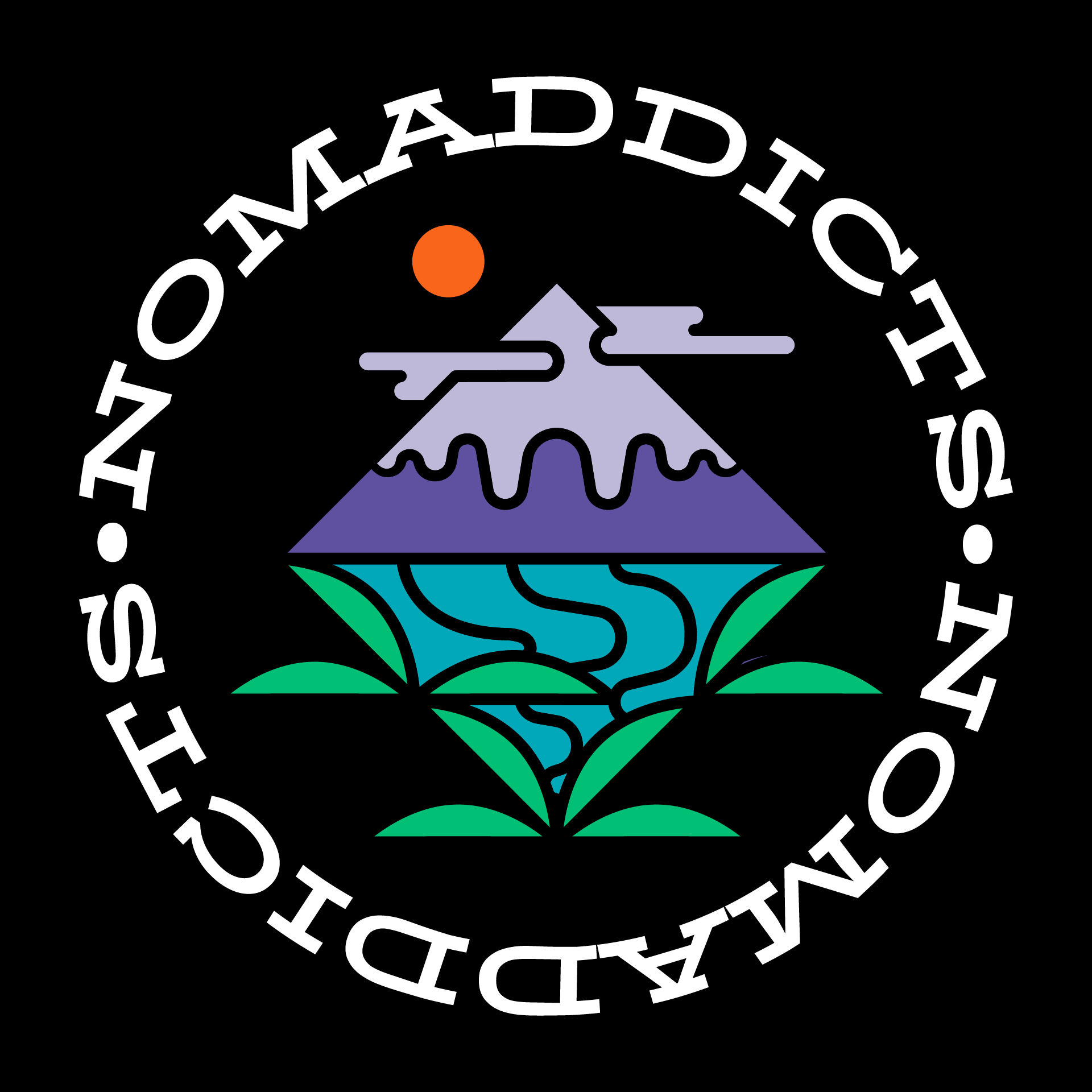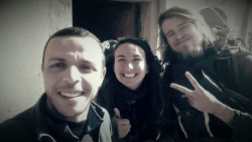Travel In Senegal: Everything You Need To Know Before You Go

Senegal is a country you can easily spend a few months in. It offers a wide array of landscapes so depending on what you’re into you can immerse yourself in big-city life, spend your days hiking mountains and cooling off in waterfalls, or soak up the sun on lush beaches. It can be as cheap or expensive as you want. You can live like a local for very little money but if you want to treat yourself to the comforts of home, it is quite easy to do, albeit for a price.
Getting In:
For most countries, there is no visa requirement for Senegal and you are permitted to stay for 3 months. Want to stay longer? Just do a border run (The Gambia is also free for most nationalities, the US not being one of them!) and come back in. You can also apply for extensions in the capital, Dakar.
You are supposed to have your yellow fever vaccine, however nobody asked to see ours when we entered and we have not heard of any other travelers being asked to show theirs.
Getting Around:
Most of the roads in Senegal are in great condition (especially compared to some other countries in West Africa). Public transportation is cheap and accessible, however, the buses are cramped and run down so breakdowns are common.
Hitchhiking is easy to do and free, although patience is required in a few places. We exclusively used hitchhiking to travel all over the country and never ran into any serious issues. You can check out our 7-part series about hitching through the country here.
We know of a few people who have biked through the country and due to the good nature of the roads, this would be a very viable way to get around!
Language:
Wolof is the second official language in Senegal after French. There are numerous other local languages spoken but learning a few Wolof phrases will improve your time in Senegal. You will automatically get cheaper prices at the market, if you’re hitchhiking it will be easier to get rides, and in general, you will make people laugh and smile at how terribly you pronounce things (although they will always say you speak very well).
A few key phrases spelled out phonetically are:
- Salaam aleekum, nangadef?–Hello, how are you?
- Man-gee-fee–I’m good
- Djen-nah-djef— Thank you
- Nyata ley dja? — How much does it cost?
- Dafa cher. Wanye saloho.— It’s too expensive. Lower your price.
- Mangee djang wolof— I’m learning Wolof
- Nor-too-doo?— What is your name?
- Mangee-too-doo (insert name and surname)– My name is…
- Ana— Where is…?
- Amgah— Do you have…?
- Wow/dede— yes/no
- Toubab— White person (you will hear this all the time if you are white)
We asked people everywhere we went to explain talking about numbers in Wolof. We never got a straight answer and usually the conversation devolved into our Senegalese friends arguing with each other about who’s interpretation was correct. Basically, the same word for numbers means different things depending on if you are counting or talking about money. The basics are:
- Ben–One
- Nyah–Two
- Niet–Three
- Nyaint–Four
- Djoorum–Five
- Djoorum ben–Six
- Djoorum nyah–Seven
- Djoorum niet–Eight
- Djoorum myaint–Nine
- Fookoo–Ten or 50 XOF (currency)
- Temehr–One hundred or 500 XOF
- Nyah temehr–1000 XOF
- Niet temehr–1500 XOF
- Djooni–One thousand or 5000 XOF
Wolof follows a fairly simple pattern. You can see this in numbers above. I’m not going to go into a linguistic lesson but recognizing the patterns that occur will help you pick up on the language quickly. When counting money, you go in increments of 500 XOF, although using French numbers is totally acceptable and used even among Senegalese people themselves. However, throwing out some Wolof numbers at the market or to taxi drivers is guaranteed to get you a lower price.
Cost:
As mentioned before, how much you are going to spend in Senegal depends on what you like to do and how you like to travel. We hitchhiked, used Couchsurfing/camped, and cooked our own meals or ate street food. This saved us hundreds of dollars as transportation, accommodation, and non-local food can be quite expensive.
In 6 weeks of traveling the country, excluding visas we needed to get for other places, we spent 210,000 XOF ($355.82). For a consice breakdown of the cost of things in Senegal click here.
Accommodation:
Most places, even smaller towns have an auberge available. Hotels and Airbnbs tend to be pricey and you need to be aware of the season you are traveling in as things book up faster in high season (November to March). Couchsurfing was viable pretty much throughout the country but there were far fewer hosts in the east. We ended up doing a lot of camping in this part of the country and by walking a little bit off the roads and into the forest, we were never messed with.
We were also invited to stay with locals a few times. Once from a ride who had picked us up and once from a man we met while walking to find a place to camp. Both times were in the eastern part of the country. So meeting locals and asking to stay is also an option if you are in a bind and on a budget.
Food And Drink:
Senegalese food usually consists of rice and fish prepared in slightly different ways. These dishes are going to be the cheapest and more widely available. They are usually spicy. Street meals are prepared as a huge, set dish and then served on individual plates. Lunch in Senegal is a communal affair so between the hours of 12-2 are the best times to get the freshest street food but will also be the most crowded. It can be difficult to find cheap eats between 3 and 6 as people have usually run out of what the prepared for lunch, are resting, or preparing for dinner.
Most larger cities have at least a few Western-style restaurants but in smaller towns and villages you will most likely be eating Senegalese food.
Senegal is predominantly a Muslim country so in smaller towns it is difficult to find booze. Palm wine is widely available and will be your best bet in these places. In bigger towns, there are always a few bars and in the cities, bars and nightclubs are abundant (Senegalese people love a nightclub!) Finding the local spots will get you the cheapest booze. It can be hard to find booze in shops in a lot of places but in bigger cities there is usually a distributor who sells it. Places frequented by tourists sell booze in most convenient stores and it is usually not terribly expensive.
Proper Social Etiquette:
Having good manners is super important in Senegal. Sometimes people expect you to know things without explaining them to you and it can be frustrating to navigate the world of social cues blind.
Bring a gift to any person you are staying with. It can be as small as some fruit but have something to offer as a gesture of gratitude for being invited to someone’s home.
When you are offered tea, finish the glass as quickly as possible. Most households only have two tea glasses and there are usually many more people than that participating in tea drinking. Finish your glass quickly so you can pass it back and allow other people to be served.
In the same vein, Senegalese people are very social and there seems to always be more people popping in for a visit than there are chairs for everybody to sit in. Offer newcommers your seat if there are not enough. As a guest yourself, people will protest and insist you keep it but it is a good gesture nonetheless.
 The-Nomaddicts
The-Nomaddicts 











hello my name is Emmanuel am form Ghana`bet I live in nigiran, pleas I want to com over to Senegal,and is by rold am coming
LikeLike